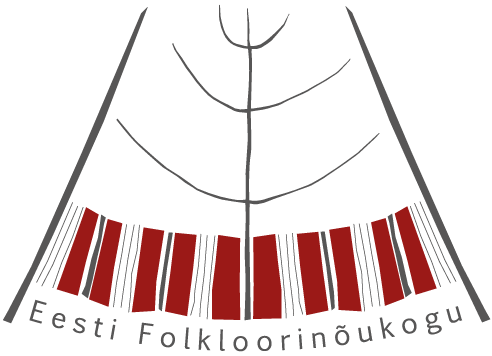HISTORY
Background of founding Estonian Folklore Council
In 1985, XVI World Congress of CIOFF® took place in Tallinn. Organizing of the congress in Estonia was a tribute to the activity of folklore groups cultivating authentic folklore (e.g. Leigarid, Leegajus, Helero, Lahemaa Folk Musicians, ensemble Torupill), as well as recognition to the unique traditional cultures of Kihnu and Setu.
Becoming acquainted with international experience, establishing contacts with CIOFF® member-countries and expression of the idea to organize the BALTICA festivals, but also the beginning of re-establishing of the independence, created a favourable bases for a rise in the folklore movement in Estonia and other Baltic states.
On November 16, 1988 the Estonian Folklore Society, one of the first voluntary unions related to folk culture in Estonia and the first of its kind in the Baltic states, was founded. The founders of the society were Kristjan Torop (1934 – 1994), Ingrid Rüütel, Vaike Sarv (1946-2004), Igor Tõnurist (1947-2021), Kalev Järvela, Kristin Kuutma, Ene Lukka, Mikk Sarv (1951-2018), Katrin Kumpan, Alar ja Anne Ojalo. The first chairman of the society was Kristjan Torop whose activity by propagation of authentic folk dance is hard to overestimate. The ideology and directions of folklore movement were worked out: on the one hand penetration into the cultural heritage, concious aim at maintenance and revival of local folklore traditions, on the other hand establishing of international contacts and active participation in the international folklore movement. These aims were accepted by the followers of similar ideas in Estonia, Latvia and Lithuania, and they have remained the principals of the folklore movement since nowadays.
On the initiative of the Estonian Folklore Society there was convened a consultative council of the leaders of the Estonian, Latvian and Lithuanian folklore movement and organizers of the Baltica festivals, who founded the Folklore Association “Baltica” on April 4, 1989 in Riga, which became an associated member of CIOFF® in 1990. In 1991, when the Baltic states had re-established independence, Estonia, Latvia and Lithuania were admitted full membership at CIOFF® in the rights of a national section. Besides new and widened opportunities, CIOFF® membership brought along serious obligations concerning development of own culture and participation in world-wide programs. It became necessary to create a broad-bottomed non-governmental organization who would represent the Estonian Republic in CIOFF®. On March 9, 1992 the Estonian Folklore Council was founded.
